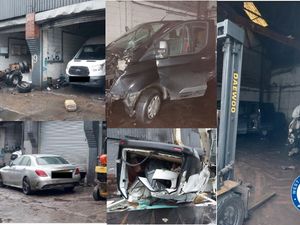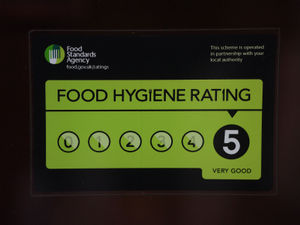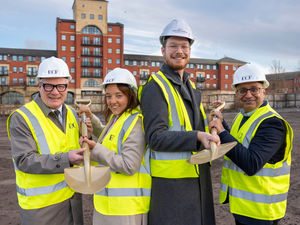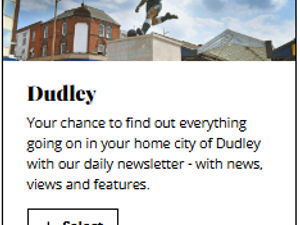Interesting history of fire-hit building in Wolverhampton revealed
It's been almost 110 years since the building engulfed in flames on Monday night was a beating heart of Wolverhampton's automotive industry – with a blue plaque highlighting its significance.
The Briton Motor Company, which built cars in the early 1900s, started off in Stewart Street before moving to a six-acre site at Lower Walsall Street and Lower Horseley Fields.
The move happened in 1913, with the six-acre site having been previously occupied by the Shrubbery Iron Works, and led to production being increased at the city centre location.
And it is the site of where a major fire broke out on Monday night, with a blue plaque showcasing the history of the fire-damaged site to the many emergency services at the scene.
The company was formed back in 1909 after the Star Engineering Company took over the Star Cycle Company, with Briton cars being produced by the firm which was run by Edward Lisle Junior.
Briton continued to work out of Stewart Street using the same workforce as they did before, with the first model being produced being the seven horsepower Little Briton in 1909 which sold for 175 guineas – with models ranging from 10 to 16 horsepower moving forward – before they moved in 1913.
Seven years later, in 1920, and they began to face some difficulty as other motoring firms began to adopt mass-production techniques – allowing them to produce and sell cars at a cost they could not match.
In December 1920, is is understood the Midland Bank took £50,000 worth of Briton stock as repayment of debts owed to them whilst production slowed. The works were sold to fellow Wolverhampton company AJS in October 1923.
The Briton Motor Company name, however, was carried on by a Charles A. Weight who moved the machine shop and components to a new site at Chillington Fields and took on a number of the company's old workforce.
Car production continued on this site until 1929, when production costs became too great, with around 600 cars having been made in total. The Briton Motor Company continued, becoming Tractor Spares Limited in 1940.




